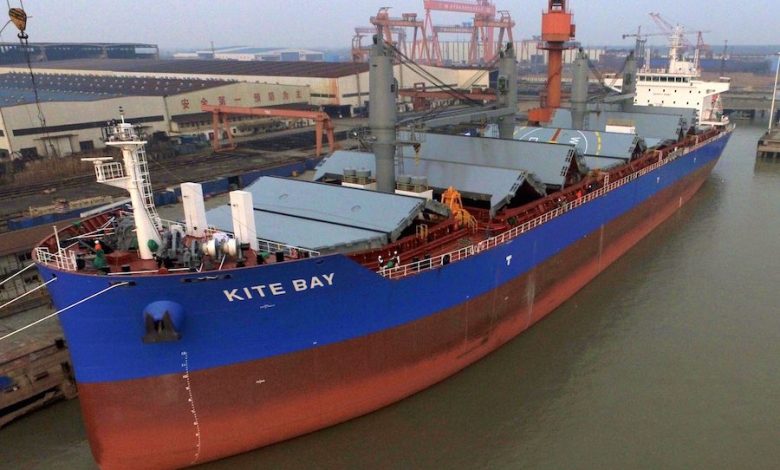Slippage permeates through this year’s ship delivery schedule

Clarksons Research is reporting that the global newbuilding delivery schedule this year will see signifiant slippage.
Globally, output in 2020 so far is down 14% year-on-year in terms of dwt according to Clarksons data. Slippage risks for the rest of the year remain, the analysts at the London firm stated in a new weekly report. Travel restrictions are impeding deliveries, equipment shortages are likely while financially stressed owners might seek to defer delivery of their ships into 2021.
Clarksons in now projecting global output to decline this year to 74m dwt, an 18% downgrade on the start of the year forecast and down 25% year-on-year.
Contracting, though ticking up in April, is down 56% year-on-year as of last Friday at just 184 ships.
The difficulties shipyards have had in meeting vessel construction schedules thanks to the spread of Covid-19 have brought a new regulation into the spotlight.
July 1 is the deadline for full implementation of the goal-based standards under SOLAS II-1/3-10. Regulation 3-10 requires that newly constructed oil tankers or bulk carriers over 150 m in length which are delivered after July 1 comply with the goal-based environmental and safety standards set out in the regulation.
A number of shipyards have been constructing vessels which do not comply with the goal-based standards with delivery originally intended before the July deadline. Some shipyards, most notably in China, have raised concerns that owing to the delays caused by Covid-19, they will only be able to deliver vessels which have not been constructed in line with the goal-based standards after the July deadline.
Law firm Clyde and Co reports that the International Maritime Organization (IMO) has issued some “welcome” guidance to shipyards and buyers, through which they have indicated that ships originally scheduled to be delivered before the deadline that are delayed beyond that date due to “unforeseen circumstances beyond the control of the shipbuilder and owner”, may potentially nonetheless be accepted by flag administrations as if they were delivered before that date.
“Given that flag administrations are likely to require evidence that the delay in delivery beyond 1 July 2020 was solely due to issues beyond the control of the shipyard and buyer, it is advisable that parties collate evidence proving that the construction was delayed due to the impact of COVID-19, and where possible obtain a formal report from the authorities of the country of construction supporting this,” Clyde and Co stated in an advisory.
